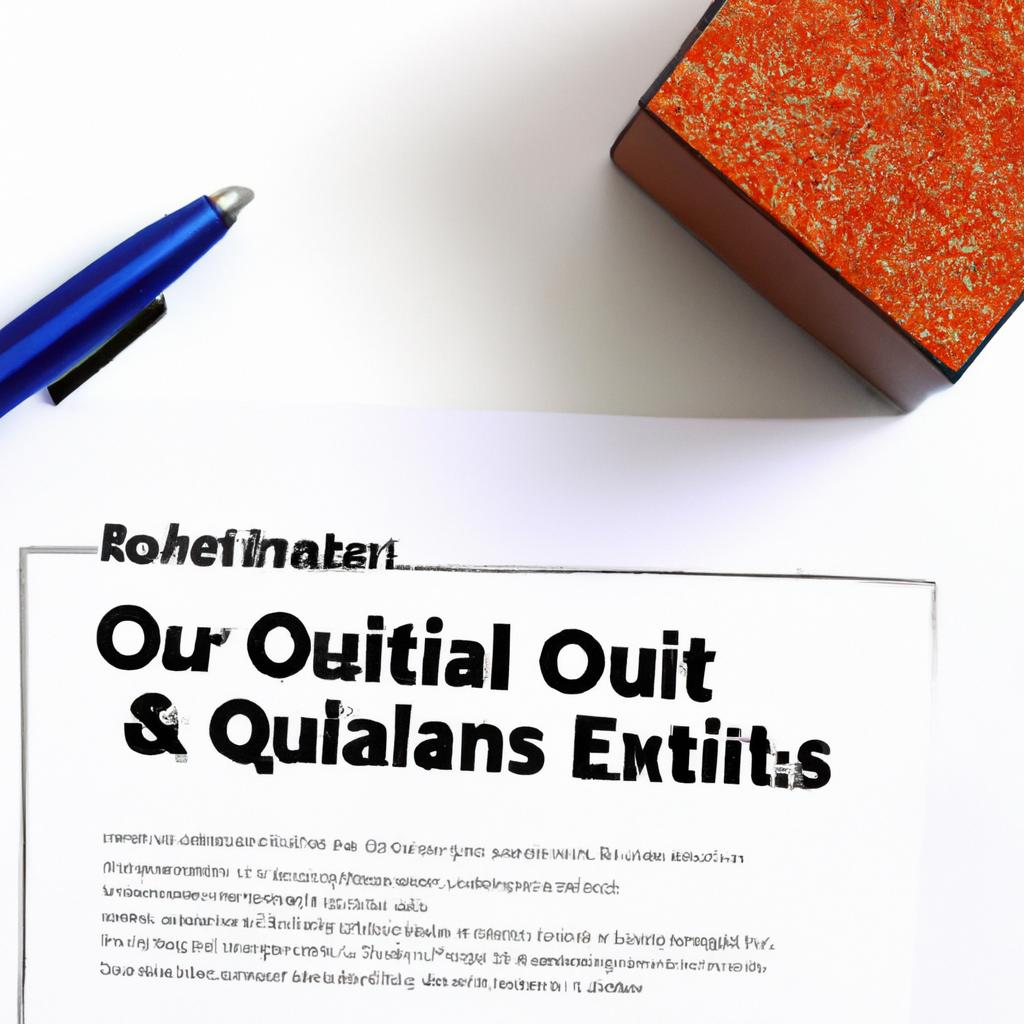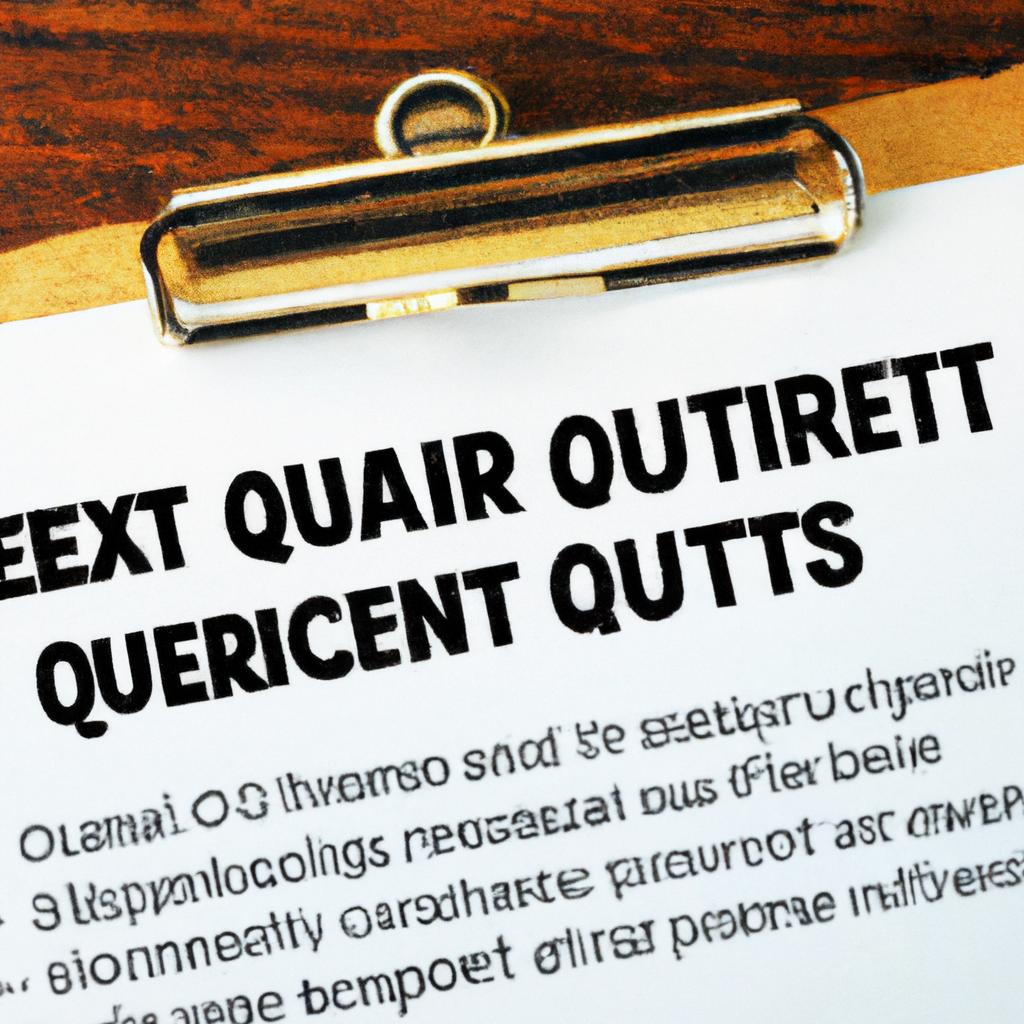In the intricate world of real estate law, the choice between a quit claim deed and a warranty deed can have significant implications for property ownership rights and future legal disputes. As experienced attorneys at Morgan Legal Group in New York City, we understand the nuances and complexities of these essential legal instruments. In this article, we will delve into the distinctions between quit claim and warranty deeds, providing clarity and guidance for individuals navigating property transfers and ownership transactions.
Distinguishing Between Quit Claim Deeds and Warranty Deeds
When it comes to transferring property ownership, understanding the differences between quit claim deeds and warranty deeds is crucial. Both types of deeds serve the purpose of transferring ownership, but they offer different levels of protection to the buyer.
**Quit Claim Deed:**
- Offers no guarantees about the title
- Transfers the current owner’s interest in the property
- Commonly used in situations like transferring ownership between family members
Warranty Deed:
- Guarantees that the seller has clear title to the property
- Provides protection to the buyer against any future claims on the property
- Usually used in traditional real estate transactions

Important Considerations When Choosing Between Quit Claim and Warranty Deeds
When deciding between a quit claim deed and a warranty deed, there are several important considerations to keep in mind. With a quit claim deed, the seller is essentially transferring whatever ownership interest they have in the property to the buyer. This means that there are no guarantees about the title, and the buyer could potentially inherit any outstanding liens or claims on the property. On the other hand, a warranty deed provides the buyer with more protection. The seller is guaranteeing that they have clear title to the property and will defend the buyer against any claims that arise from previous owners.
It’s crucial to carefully weigh the pros and cons of each type of deed before making a decision. Factors such as the state of the property title, the relationship between the buyer and seller, and the level of risk tolerance should all be taken into account. Consulting with a knowledgeable real estate attorney, such as the experts at Morgan Legal Group in New York City, can help you navigate the complexities of property transactions and ensure that your interests are protected.

Potential Risks and Benefits of Quit Claim Deeds in Real Estate Transactions
When it comes to real estate transactions, understanding the potential risks and benefits of using quit claim deeds versus warranty deeds is crucial. Quit claim deeds are commonly used to quickly transfer property without warranties or guarantees of title, making them a potentially risky option. While they can be useful in certain situations such as transferring property between family members or clearing up title issues, they do not provide the same level of protection as warranty deeds.
On the other hand, warranty deeds offer a higher level of protection to the buyer by guaranteeing that the seller has clear title to the property and will defend against any claims that may arise in the future. This added assurance can be invaluable in ensuring that the buyer is receiving a clean title. However, warranty deeds can also come with higher costs and may require more extensive title research to ensure that the title is free of any defects. Ultimately, the decision between using a quit claim deed or a warranty deed in a real estate transaction will depend on the specific circumstances of the transaction and the level of protection desired by the parties involved.

Expert Recommendations for Utilizing Quit Claim and Warranty Deeds effectively
The utilization of **quit claim deeds** and **warranty deeds** can be highly effective in various real estate transactions. When considering which type of deed to use, it is crucial to understand the differences between the two and how each can impact the transfer of property ownership.
Quit claim deeds are commonly used in situations where the property transfer is between family members, as gifts, or to clear up title issues. These deeds provide no guarantees regarding the property’s title history, making them less secure than warranty deeds. Conversely, warranty deeds offer a guarantee that the grantor has legal ownership of the property and can defend the title against any claims. It is essential to carefully consider the circumstances of the property transfer and consult with legal experts to determine which type of deed is most suitable for your needs.
| Quit Claim Deed | Warranty Deed |
|---|---|
| Commonly used for family transfers | Offers a guarantee of title ownership |
| No guarantee of title history | Defends against claims on the title |
| Suitable for quick property transfers | Secure option for property sales |
Q&A
Q: What is the difference between a quitclaim deed and a warranty deed?
A: A quitclaim deed transfers whatever interest the grantor has in the property to the grantee, without any guarantees about the property’s title. On the other hand, a warranty deed guarantees that the grantor has good title to the property and will defend the grantee against any future claims.
Q: When should I use a quitclaim deed?
A: A quitclaim deed is typically used in situations where the parties know and trust each other, such as transferring property between family members or spouses in a divorce. It is not recommended for real estate transactions where title insurance is necessary.
Q: What kind of protection does a warranty deed offer?
A: A warranty deed offers the most protection to the buyer, as it includes covenants or guarantees about the title. These covenants may include the guarantee that the grantor has legal title to the property and that there are no undisclosed encumbrances.
Q: Can a quitclaim deed be upgraded to a warranty deed?
A: Yes, it is possible to upgrade a quitclaim deed to a warranty deed through a process known as “reconveyance.” This typically involves the grantor guaranteeing the title and making any necessary corrections or updates to the property’s records.
Q: Are there any risks associated with using a quitclaim deed?
A: Yes, using a quitclaim deed can be risky for the buyer, as it does not offer any guarantees about the title. If there are any issues with the property’s title, the buyer may be left without legal recourse. It is important to consult with a real estate attorney before using a quitclaim deed in any transaction.
The Conclusion
In conclusion, understanding the key differences between quit claim and warranty deeds can greatly impact your real estate transactions. Whether you prioritize speed and simplicity or seek added protection and assurances, choosing the right type of deed can make a significant difference in your ownership of property. It is important to consult with a legal professional or real estate expert to determine which type of deed is best suited for your specific needs and circumstances. By arming yourself with knowledge and guidance, you can navigate the complexities of property transfers with confidence and clarity. Choose wisely, and may your future real estate endeavors be prosperous and secure.

